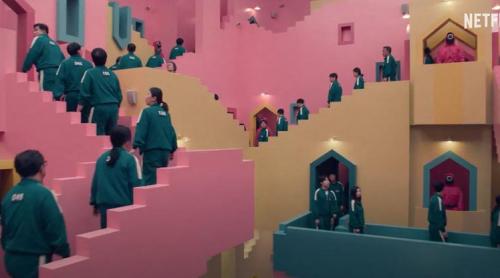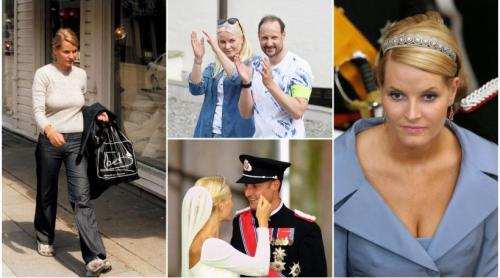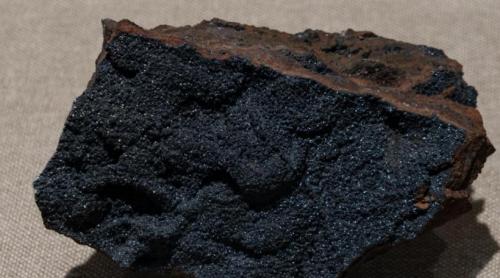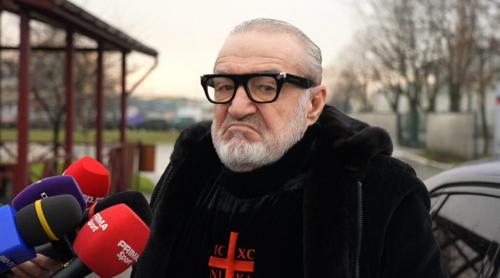Adrian Nastase Wednesday resigned his position of Speaker of Romaniaâs Chamber of Deputies, after pressure from his party mounted against him.
This was the start of the political bickering for filling his former position.
After the hour-long meeting of the Social Democrat Party, or PSD, during which Nastase lost his partyâs political support, he arrived at the Chamber of Deputies and announced the Houseâs leading permanent body his decision to resign. Nastase was expected to do the same Thursday, in a House plenary session.
However, Nastase parted with the position with regrets.
"Of course I am upset to leave the position, since I had many plans I could not embark on last year because of the pressure the ruling coalition put on me to leave the Speakerâs position. I had hopped my time to accomplish my plans had come this year," said Nastase.
He also had regrets for taking part last year in the debate prompted by the pressures the ruling coalition put on the parliament to take him out of the Speakerâs seat.
Once Nastase was out of the picture, the race was on for both ruling and opposition parties to place their candidate for the position of House Speaker.
The House will take a vote on the issue on Monday.
Mircea Geoana, PSD president, said the party would not relent and give up the Speakerâs position which is rightfully the partyâs.
MP Victor Ponta, PSD, said the party supported Valer Dorneanu as House Speaker. He reminded that both the House Statute and the ruling of the Constitutional Court on the matter state that the Speaker should be a member of the PSD.
"Unfortunately, we will reach a dead-lock, because I cannot imagine the ruling coalition voting our candidate, so we will have no House Speaker," Ponta said.
MPs of the ruling coalition disagree, saying they are free to advance their own candidates to the position.
"I believe it is obvious that in a public institution, following a vacancy, anyone may advance and support oneâs own candidate," said Crin Antonescu, a member of the National Liberal Party, or PNL.
Most likely there will be two candidates: one from the opposition, the other from the ruling coalition, said Antonescu.
The Democrat Party, or PD, and the PNL, the two major partners in the ruling coalition, did not agree on a common candidate for the House Speaker.
The liberals stood by a previous agreement, which made liberal Bogdan Olteanu, minister for the relationship with the Parliament, the sole candidate of the two partiesâ alliance. But democrats said the deal was off, as a new decision was to be taken following consultations both in the two-party alliance and in the larger ruling collation of four parties.
Antonescu said the previous PNL-PD deal should be re-confirmed, given that the liberals are the larger parliamentary groups of the two parties. "However, surprises are not ruled out; the democrats used us to this type of behavior, so, letâs wait for their explicit confirmation to know the deal is not off," Antonescu said.
Liberal MP Mona Musca said she would not run against Olteanu for the Speakerâs position, when her name surfaced as a possible candidate.
Cristian Radulescu, head of the democrat MPs said there was no final decision on the Houseâs presidency, as "a meeting was due do settle it." But a later press release from the PD headquarters stated that the party would support the liberal candidate.
The Conservative Party, or PC, a junior member of the ruling coalition, nominated Daniela Popa as its candidate to the Speakerâs position, said PC spokesman Bogdan Ciuca. He said Popa was a valid candidate, as a person with parliamentary experience; he also said the PC would respect the decision of the Constitutional Court saying the political break-down of the Chamber of Deputies should be mirrored in its leading bodies.
The Greater Romania Party, in opposition, made no decision on the matter, while the Democratic Union of Hungarians in Romania, the other junior member in the ruling coalition, said it would wait the decision made by the ruling coalition.
Translated by Anca Paduraru


















